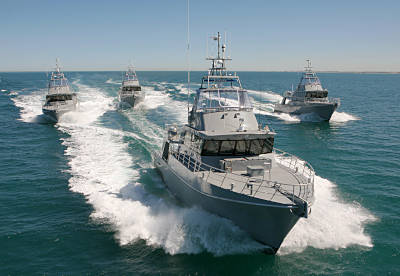WASHINGTON, Sept. 16, 2011 — The program coalition forces helped to create in Afghanistan last year to turn young men away from the insurgency and reintegrate them back to their communities is going a long way in building trust and confidence there, a military official said today.
Afghan and coalition leaders faced “huge challenges” when the reintegration program began last fall, Maj. Gen. Phil Jones of the British army told reporters during a NATO news conference. Jones is the director of the International Security Assistance Force’s Force Reintegration Cell in Kabul.
“They have overcome incredible skepticism and doubt that a social peace program could emerge in the middle of this conflict,” Jones said in a video link to NATO headquarters in Brussels from the Afghan capital of Kabul.
Afghan leaders’ vision of the program is “to build trust and confidence among people who have been fighting each other and their government for many years,” Jones said, noting that Afghans have endured war and conflict for more than 30 years.
Through the outreach of Afghanistan’s social, political and religious leaders, Jones said, “peace is built village by village, if necessary.”
As security improves and areas stabilize, “fighters are brought home to reintegrate into the community,” he said. “This means that fighters return to peace as consequence of peace building, not as result of material or financial [need].”
The general urged coalition forces to be patient with the Afghan pace of change. “It’s incredibly important to understand and respect the necessity of the courageous, patient, confidence-building conflict-resolution work” being done across the country, he said.
“Coming to peace after a lifetime of fighting is a tough process, and we have to recognize that,” the general said. “The Afghans see peace building as a very, very long-term program. It’s about starting a wider social movement of peace that increasingly binds the Afghan people.”
Reintegration is based on grievance resolution and Afghan notions of forgiveness, Jones said.
Under the program, fighters “can step out of the fight — this is not surrender,” Jones said. “They can rejoin society with their honor and dignity intact and, where possible, we will work with their community on security,” he added.
A year ago, a thousand former fighters were enrolled in the reintegration program, which was planned for eight provinces, Jones said. Today, reintegration is happening in 34 provinces and officially includes 2,436 men “who are no longer shooting at ISAF soldiers, and no longer laying [roadside bombs] that kill innocent women and children,” he said.
Jones said he believes many more former fighters are “simply going home and silently reintegrating into their communities.”
It is impossible to know the number of insurgent fighters, which changes season to season, the general said, but ISAF officials believe it’s in the realm of 25,000.
“Building peace out of war is a tough human process,” he said. “After 30 years of conflict, people will be cautious and wary, [and] skepticism and doubt remains widespread. It requires huge energy to overcome the nature of war, and great persistence to build confidence and trust and momentum.”
Source:
U.S. Department of Defense
Office of the Assistant Secretary of Defense (Public Affairs)

 von
von 